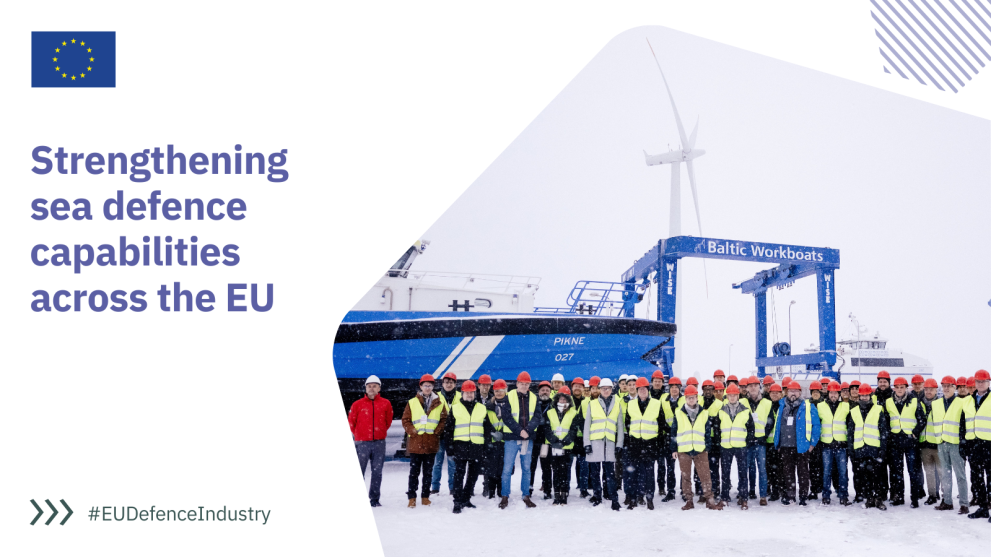
|
With 65 million euros allocated through the European Defence Fund (EDF), the EUROGUARD project officially kicked-off in Estonia earlier this January. Naval power and supremacy at sea is crucial for the European armed forces to fulfil their missions and to defend European citizens and territory. In line with the EU Maritime Security Strategy and to ensure the technological evolution our continent’s naval combat capabilities, Member States and the defence industry can rely on the European Defence Fund (EDF). Among the 37 grant agreements signed as part of the 2022 EDF Work Programme was project EUROGUARD. Strengthening sea defence capabilities across the EU EUROGUARD looks to develop a modular and semi-autonomous surface vessel (MSAS) platform equipped with a remote-control system, aiming to strengthen sea defence capabilities across our continent. While the specific capabilities of the prototype will be determined through multi-year development activities, the vessel should be able to navigate autonomously, detect obstacles obstacle and threats, avoid collisions, and perform other mission-specific tasks. The prototype must comply with the principle of modularity, allowing it to be assembled according to specific needs or tasks. Innovation is also expected in the propulsion system, with environmental sustainability being an important keyword. The prototype is expected to be finalised and tested by the end of 2027. Check this out: EUROGUARD Brochure A true European collaboration With a total budget of 95 million euros -65 million allocated through EDF - the consortium is led by Estonian shipbuilding company Baltic Workboats and consists of 23 companies from Belgium, Denmark, Estonia, France, Italy, Poland, The Netherlands, Norway, Spain, and Sweden. The opening session of the kick-off meeting gathered over 70 stakeholders from the participating companies and EU Member States while it was attended by Kusti Salm, Permanent Secretary of the Estonian Ministry of Defence, and Commodore Jüri Saska, Commander of the Estonian Navy. Participants reviewed and discussed the technological areas, including but not limited to system architecture, green propulsion, the mission modules, autonomy, or cyber security. Furthermore, there was a fruitful debate on each of the three operational scenarios thoroughly prepared to frame the discussion. The meeting culminated in a visit to the Baltic Workboats shipyard at Nasva. |
Details
- Publication date
- 26 January 2024
